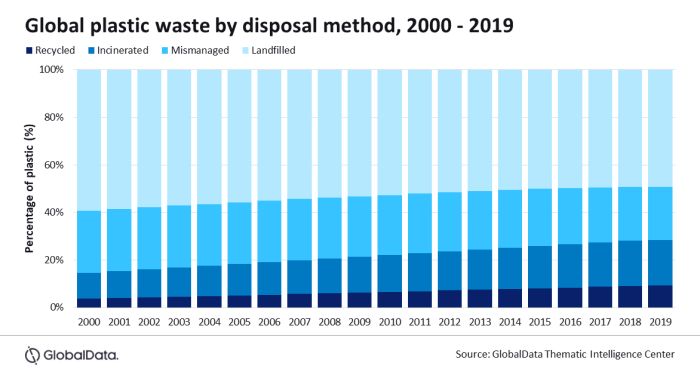Oil and gas industry embraces circular economy to combat plastic pollution, says GlobalData

The circular economy involves recycling, reusing, and repurposing of products to extend their usable lifetime. Among the oil and gas industry’s conventional products, plastic is the most relevant to the circular economy. Increasing demand for circular economy solutions in the oil and gas industry, especially regarding plastics, presents several long-term opportunities for companies. Companies can invest in the production of circular polymers, thereby making it easier to recycle plastics. Moreover, there is a considerable scope to increase their recycling capacities, allowing them to fulfil ESG goals by reducing virgin plastic production, says GlobalData, a leading data and analytics company.
GlobalData’s thematic report, “Circular Economy in Oil and Gas,” discusses the need for circular economy in the oil and gas industry to address plastic pollution. It also highlights the role of major oil and gas companies, such as ExxonMobil, Shell, and TotalEnergies, in their efforts to establish circular economy for plastic as a commodity.
Ravindra Puranik, Oil and Gas Analyst at GlobalData, comments: “The use of plastics has skyrocketed in the last few decades and has accelerated plastic pollution in the soil and aquatic environments. As awareness about the ill effects of plastic use grows among consumers, several countries and some enterprises are taking steps to remedy the situation, while ensuring the economic activity remains unaffected.”
Plastic is an essential commodity in today’s economy. Overuse and mismanagement of plastic upon end-of-life results in a huge amount of waste, leading to pollution. This calls for efficient recycling of plastic waste. In 2019, less than 10% of the plastic waste generated was recycled compared to the 460 tons of the commodity produced that year.
Puranik continues: “Several economies are taking steps to limit their plastic pollution and encourage circularity. The European Union has set specific targets to reduce the use of single-use plastic in its jurisdiction. Countries in other regions, such as Japan and Australia, have also set targets to eliminate plastic waste generation.”
The ill effects of plastic waste and the non-renewable nature of fossil fuels used its production has prompted efforts to achieve sustainability with plastics. This involves reducing plastic waste from going to landfills, being incinerated, and largely being mismanaged. There is a need to improve plastic waste and facilitate recycling, extending its usable lifetime. This can alleviate demand pressure on virgin plastic that annually enters the market.
Puranik concludes: “Companies are working to find suitable alternatives, to minimize the dependence on plastic made from conventional methods. The use of bioplastics is an emerging trend in the industry. Bioplastics are produced using alternative feedstock such as agricultural waste. Industry leaders such as BP, Shell, and TotalEnergies, have set themselves targets for plastic recycling. Companies are pursuing approaches such as mechanical recycling, chemical recycling, besides bioplastic production to support their ESG commitments.”
Aout GlobalData
4,000 of the world’s largest companies, including over 70% of FTSE 100 and 60% of Fortune 100 companies, make more timely and better business decisions thanks to GlobalData’s unique data, expert analysis and innovative solutions, all in one platform. GlobalData’s mission is to help our clients decode the future to be more successful and innovative across a range of industries, including the healthcare, consumer, retail, financial, technology and professional services sectors.


